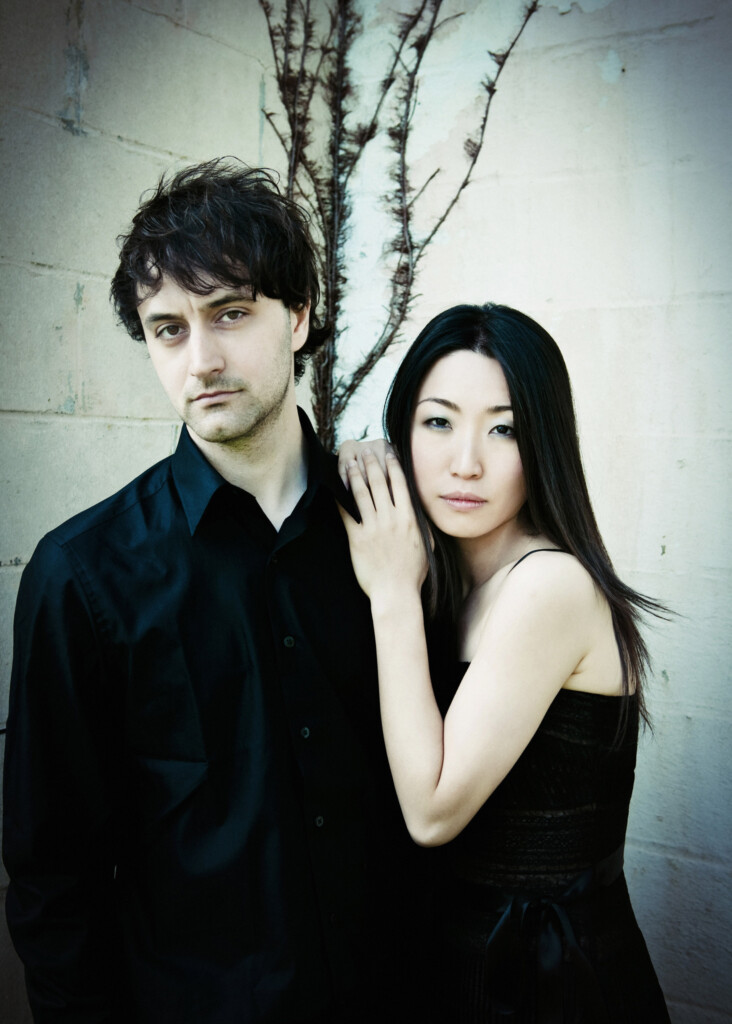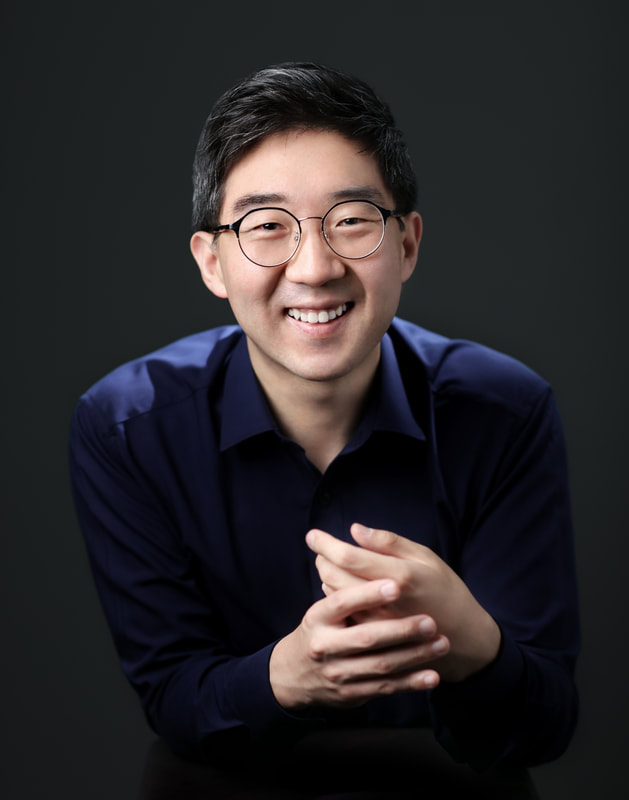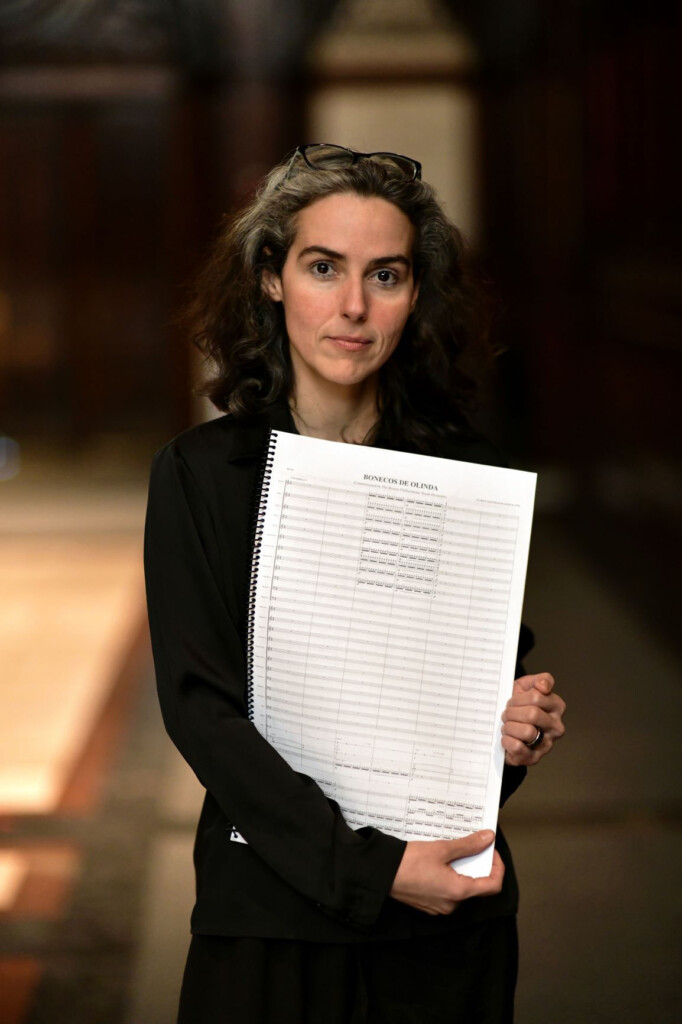Two of Salt Lake City’s most distinguished music series return to live performances this week with season openers.
GINA BACHAUER INTERNATIONAL PIANO FOUNDATION
The Gina Bachauer International Piano Foundation’s new season of concerts will feature the gold and bronze medalists from the 2018 Bachauer piano competition as well as a world premiere in a program of solo and four-hand piano compositions, an all-Liszt program and a clever “menagerie” of music inspired by the animal kingdom.
The first two concerts feature artists who were scheduled to perform in Salt Lake City in the spring of 2020 before the pandemic wiped out performance schedules. Incidentally, in both concerts, the artists have revamped their original programming. Leading the season this Friday (Oct. 8) at 7:30 p.m. will be the duo of Ran Dank and Soyeon Kate Lee, who are blending music from Debussy and Chopin with selections by American composer William Bolcom and a world premiere by the Korean-born American composer Texu Kim. The key word for this opening concert is the easy accessibility to the music for the audience’s benefit, regardless of the time during which it was composed.
Kim’s work Flow and Composition is a solo that Lee will perform. Kim, who is on the music composition and theory faculty at San Diego State University, is well known for compositions that are playful yet substantive commentaries on everyday experiences as well as inspirations from modern Korean cultural and multicultural aspects. In an interview last spring when his latest album Playful dropped, he said, “People say contemporary music isn’t fun. But even though it’s not easy on your ears, if it’s ‘strangely fun,’ or you think ‘how can this be music?’ I think that’s enough. When comparing it to food, it’s like a deliciously spicy food.”
In this latest piece, Kim steps into the abstract realm as he explores crafting his distinctive musical language. In an interview with The Utah Review, he compares the experience to what Bartók moved toward in the later years of his career, as he continued to synthesize the experiences of capturing the ethnic musical traditions of Hungary and other Eastern European cultures. “I have been doing similar things with the sounds of music of modern culture in South Korea, which have evolved rapidly,” Kim explains.
He notes that while many Western instruments have Korean counterparts, there is no parallel keyboard instrument in Korean music so it always has been a unique challenge to translate non-western idioms and elements into western music, especially through the keyboard.
Therefore, Kim says this newest composition embodies some of the basic calligraphic notation patterns unique to Korean culture as well as the compound triple meters of Korean folk and peasant music and the uniquely Korean inflection of moving harmonically from the major third to the minor third, a progression not found in other East Asian countries. In terms of melodic efforts, Kim says the energy principle of chi is the guide, where the emphasis is on the soft-spoken or natural breath of minimum effort to achieve the most effective realization of the sound occurring in the right place at the right time.
The premiere also coincides with a major award for Kim, who has seen his compositions performed by orchestras across the country and internationally. Chosen from among 574 submissions coming from 41 countries, Kim is receiving a $12,000 commission from The Barlow Endowment for Music Composition at Brigham Young University. Kim says he was checking into a Chicago hotel, when he received the email announcing he had won the Barlow Prize. “I was so surprised that I was moved nearly to tears by the news.” The commission calls for a Sinfonietta that will receive its premiere by four ensembles. The Sinfonietta form has special meaning for Kim, who says that the first two works he had premiered after he moved to the States from South Korea in 2011 were works of that form.
Lee will open the program with three selections from Debussy’s Préludes (La puerta del vino, Ce qu’a vu le vent d’ouest, Les fée sont d’exquises danseuses). Dank will perform three Mazurkas from Chopin, including the posthumously published À Émile Gaillard, along with his Polonaise in A-flat Major, Opus 53.
Like Lee, Dank turns his attention to a contemporary American composer for three solo selections taken from Bolcom’s Twelve New Etudes for Piano, Book II, which received the Pulitzer Prize in Music in 1988. Composed as a companion to an earlier book of etudes written in the 1960s, Bolcom wrote these pieces between 1977 and 1986, dedicating the first nine to the late pianist Paul Jacobs and the last three to Marc-Andre Hamelin.
The music for the etudes definitely springs from the composer’s appreciation for contemporary vernacular expressions in American music including pop. Dank has selected etudes from the middle of the book for performance: No. 4 Scène d’opéra, which pits a steady ostinato rhythm against varied shifting, irregular rhythms; No. 5 Butterflies, hummingbirds, featuring a lateral tremolo and abrupt shifts in tone hues, attack and tempi, and No. 6 Nocturne, marked by sharp contrasts in dynamics and tone.
After the intermission, Lee and Dank return to turn up the volume for pleasure with four-hand arrangements including Hamelin’s Tango and Stravinsky’s Rite of Spring for a blockbuster ending.
Dank and Lee augment their careers as musical ambassadors, with events such as the Music by the Glass concert series in New York City which encourages audience members to mingle with performing artists while sampling wines. Dank has performed in various international piano competitions, including taking the first prize at the Hilton Head international competition. Lee, likewise, has accumulated competition honors, including the top prize at the 2010 Naumburg International Piano Competition. The husband-and-wife duo are on the faculty of the University of Cincinnati’s College Conservatory of Music.
The season will continue with Changyong Shin returning to New York City’s Carnegie Hall, playing selections from three composers whose music constitute some of the greatest warhorses of international piano competitions: Chopin, Schumann, and Rachmaninoff. The Bachauer Foundation is presenting the Oct. 29 concert in New York City and ticket information is available here at the Carnegie Hall website.
The season returns to Salt Lake City on Nov. 12 at 7:30 p.m. with the concert theme The Wanderer, featuring Sergey Belyavsky, the bronze medalist in the 2018 Bachauer competition. Along with Schubert’s Fantasy in C Major, D. 760, he will perform Liszt transcriptions of selections from Schubert’s Die schöne Müllerin. The concert includes several masterly feats of piano technique in two selections from Liszt’s Transcendental Etudes (impressively performed back to back), the Tarantella from Venezia e Napoli, Années de pèlerinage II and Hungarian Rhapsody No. 9 in E-flat Major (Carnival in Pest). The Moscow-born pianist, now 28, debuted at the age of 10 and has performed in nearly 30 countries. Along with a Nov. 10 concert at Utah Valley University, these two programs will be Belyavsky’s first post-pandemic concert appearances outside of Europe.
The 2022 portion of the season will feature Ching-Yun Hu on March 11 at 7:30 in a solo concert of Liszt works, including transcriptions of Schubert’s Ave Maria and Erlkönig and original works Un Sospiro and Spanish Rhapsody.
A Taiwan native, she won the top prizes at the Arthur Rubinstein International Piano Competition in Tel Aviv and the Concerts Artists Guild Competition in New York. Hu is the founder and artistic director of the Philadelphia Young Pianists’ Academy (PYPA), which will mark its 10th anniversary in 2022. She also serves on the piano faculty at Temple University and is a visiting professor at the Shenzhen Arts School in China.
The season will close on April 29 at 7:30 p.m. with Hsiang Tu, a Taiwanese native, playing selections from an album of recordings of works he selected from composers of many different eras that could represent animals. Tu, winner of The Juilliard School Concerto Competition and an internationally known teacher and performer, released the Bestiary on Ivory recording through Bridge Records last year, his debut solo release. Currently on the piano faculty at Virginia Tech, Tu curated music from various composers including Bolcom, Cowell, Bartók, Schumann and, of course, Saint-Saens. Incidentally, Tu also has taught at Utah Valley University and Snow College in Utah.
All programs with the exception of the Shin concert will be held in the Jeanné Wagner Theatre of the Rose Wagner Center for Performing Arts in downtown Salt Lake City. Audience members will be asked to produce proof of vaccination for admission or proof of a negative COVID-19 test taken within 48 hours to be admitted (a photo on a smartphone is acceptable). Children 12 and under will be admitted. All patrons will be required to wear a mask during the performance. For tickets and more information, see the Bachauer website.
NOVA CHAMBER MUSIC SERIES
Gratitude is the ideal word for NOVA Chamber Music Series’ first Libby Gardner Hall concert on The University of Utah campus since the winter of 2020. And, the Fry Street Quartet, whose members are serving as co-music directors for the series, have programmed the new season’s first concert with the series’ distinctive brand of juxtaposing familiar works by well-known composers with 21st century works by contemporary artists.
As mentioned in an earlier season preview, the program — Oct. 10, 3 p.m. — is bookended by works of two composers who need no introduction: Beethoven’s Heiliger Dankgesang, Opus 132, featuring the emotional centerpiece of a song of thanksgiving and joy, written in the next to last of the 16 string quartets he composed, and Brahms’ String Sextet No. 2 in G major, Opus 36, a work of thoroughly cheerful colors.
Meanwhile, Brittany J. Green’s …to experience life offers a solid contrast in expression of gratitude. The young composer, based in North Carolina, incorporates electronics and bits of sound, video and text into her works. The Green composition was premiered in 2019 by the Splice Ensemble at a Western Michigan University concert. The eight-minute work is scored for trumpet, piano, percussion and electronics. In her own notes, as published on her website, she explains, “How do we define the experience of life? Is it the breaths we take? The biological functions of existence and growth? Perhaps, living is defined through our time on Earth, the thoughts we have, our experiences with one another, or the impact we leave on our planet and the collective conscious.”
Another contemporary highlight will be Clarice Assad’s Metamorfose, a 2017 work, scored for viola and piano. Metamorfose was commissioned by violist Matthew Lipman and recorded for Ascent, his 2019 release by Cedille Records, which also included a performance of a recently uncovered work for viola and piano by Shostakovich. The recording also features pianist Henry Kramer. In an interview with The Utah Review, Assad says Lipman asked her about collaborating on a new composition in memory of his mother who had recently died. “I was really touched to be asked to be involved in emotionally connecting to someone I had never met,” she adds. “It was such a great responsibility but we also talked a lot about his relationship with his mother as well as the grief that comes with losing his mother and his best friend.”
The metaphor of the caterpillar turning into a butterfly captivated Assad, especially from the moment when a caterpillar molts into a shimmering chrysalis, where the radical transformation occurs for the butterfly to emerge. With that in mind, Assad explored various extended techniques, such as playing with the inside strings of the keyboard instrument as well as marking spots for the violist to improvise freely. “I wanted the piece to have a natural intuitive and organic sense,” she adds. To wit, her program note for the piece builds on that sentiment: “When compared to the grieving process, in all its stages, it made so much sense to me. The story of emotional, physical loss and pain; the transition from something so excruciatingly difficult into the freedom that perhaps only acceptance can provide to much of the suffering that takes place in the world in all its forms.”
The day after the NOVA concert, the Fry Street Quartet will give the world premiere of Assad’s Canções da America in a Utah State University concert, where the quartet is in residence at the music school (Oct. 11, 7:30 p.m.). While so much of Assad’s original music springs from her Brazilian roots, this work explores influences from her native country’s neighbors including Argentina, the home of Claudia Montero, a composer whom Assad considers a seminal mentor to her and peers in recent generations of South American women composers. The six movements, as Assad, tracks in her note for the work, emerge from various dance forms including Uruguay’s Milonga, Brazil’s choro, and Argentina’s tango as well as music of Paraguay and Andean melodies associated with Peru, Bolivia, Ecuador and Indigenous peoples. Canções da America also will be performed at the April 10 concert in the NOVA series, titled Songs of the Americas.
This is the second piece the Fry Street Quartet has commissioned from Assad. The first was Pandemonium, a concertino for string quartet and string orchestra, which was premiered by the San Jose Chamber Orchestra in 2012. Assad says that among her most valuable experiences for developing as a composer came from doing arrangements and diving deeply into original scores, which she did for the New Century Chamber Orchestra.
Utah audiences may remember Assad’s performance at the Utah Arts Festival in 2016. Assad comes from one of the world’s best known musical families, which includes the Assad Brothers: her father (Sergio) and her uncle (Odair). An award-winning opposer with numerous international commissions, Assad fuses elements of her Brazilian heritage into her music that handily synthesizes jazz, symphonic and experimental features.
Audience members will be asked to produce proof of vaccination for admission or proof of a negative COVID-19 test taken within 72 hours to be admitted (a photo on a smartphone is acceptable). All patrons will be required to wear a mask during the performance. For more information and tickets, see the NOVA website.




